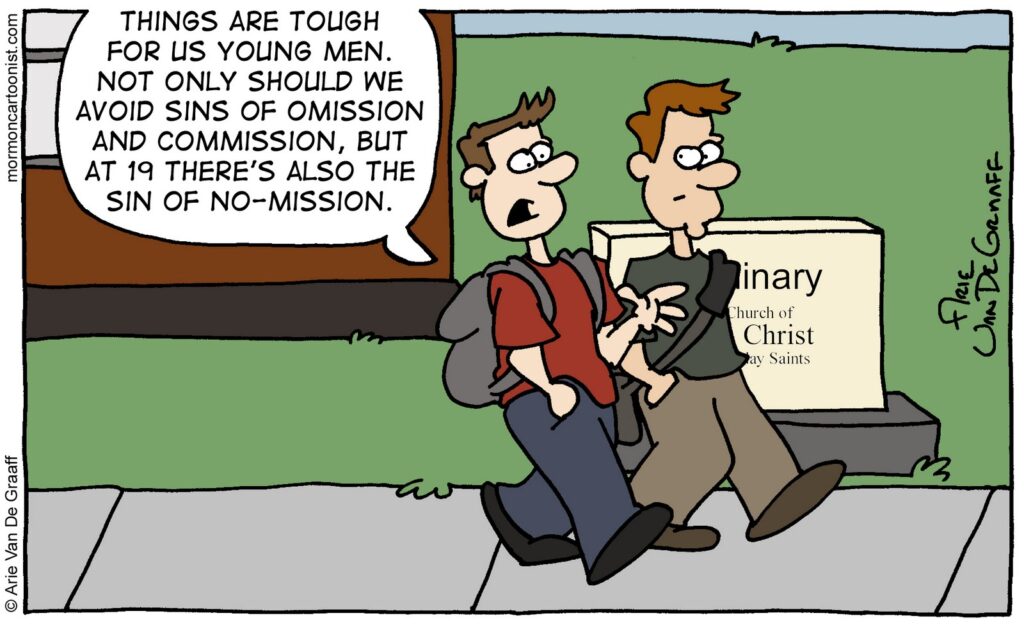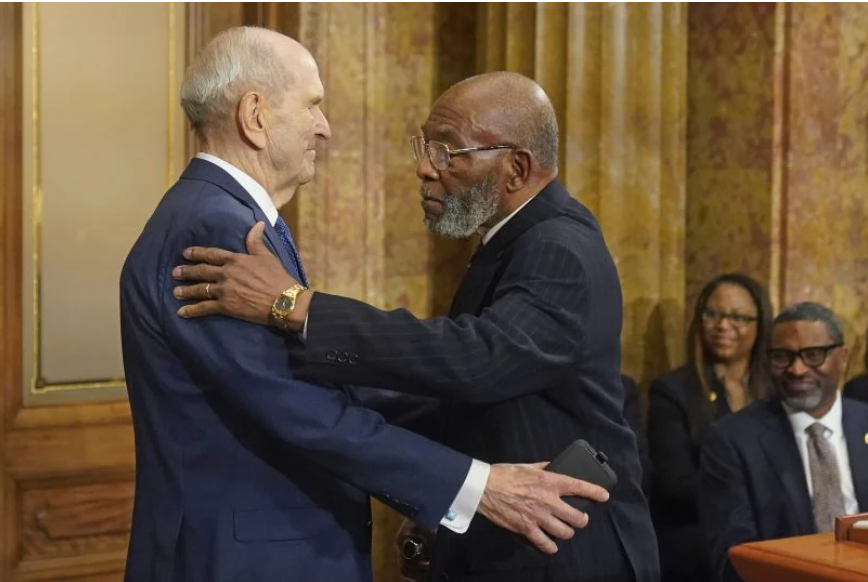To accompany your Come Follow Me study for November 13-19
In addition to reading the indicated chapters, you may wish to:
Read the applicable portion of the New Testament Institute Student Manual at
See the following videos:
If you would like a Kahoot game related to this material which you could use for personal study or use with your family or your class, click here: https://create.kahoot.it/share/the-book-of-james/39d8fde8-4745-472c-94ae-13b55d37a825 . (To use it with a group, after clicking on this link, you will need to log into Kahoot, creating a free account if you have not done so previously, then click on the blue “Start” button.)
Points to Ponder in James
Which four passages in this week’s reading do you believe would be most useful in missionary work, and what is the main point you would highlight from each?
Which four passages in James do you find most inspiring or motivational to you personally, and what is the main point of each?
List at least four passages in James that you feel could be misunderstood by a new reader of the scriptures. In each case indicate what additional explanation or clarification you think would be helpful.
Possible Answers to Points to Ponder in James
Which four passages in this week’s reading do you believe would be most useful in missionary work, and what is the main point you would highlight from each?
Your choice. My list would include:
- 1:5-6: The best known of the passages which led Joseph Smith into the woods to pray, initiating the latter-day restoration of the gospel. Those hearing the message for the first time are invited to do what Joseph did—ask of God, with full assurance that He will answer them, too.

- 5:16: “The effectual fervent prayer of a righteous man availeth much.” An investigator who won’t pray won’t progress. He needs to pray not only to know that the Joseph Smith story is true but to pray for strength and courage to make the needed changes in his life.
- 1:22-23, 2:14, 17-26. “Faith without works is dead.” Despite what some have thought, James and Paul really didn’t disagree on this point. But faith is not a passive admission that Jesus is the Christ or that He has spoken to prophets in our day. It is an energetic trust in Him, which will always produce the needed “works” of repentance, submission to baptism, and faithful service throughout life. Both Paul and James would agree that just as faith without works is dead, so are works without faith. In the end, it is the faith which saves, but faith unaccompanied by works is not faith at all.
- 5:14-15: Administering to the sick with the use of consecrated oil is characteristic of the true Church both anciently and in our day.

Which four passages in James do you find most inspiring or motivational to you personally, and what is the main point of each?
Your choice. I would want to include all eight of the following. But if forced to limit my selection to four, I would probably pick those highlighted in bold print.
- 1:26-27: The mark of one having truly embraced “religion” is not that he spends a lot of time in church but that he spends a lot of time in service to the needy.

- 1:19: James urges us to be swift to hear, slow to speak, and slow to wrath.
- 2:8: What James defines as the “royal law” is more commonly known as the Golden Rule: “Thou shalt love thy neighbour as thyself.” If followed, this would virtually eliminate wars, divorces, and put many lawyers out of business.
- 3:2-8: James eloquently summarizes the problems arising from an uncontrolled tongue.

- 4:3: Why some prayers are unanswered
- 4:17: Sins of omission are characteristic of those who will inherit the terrestrial kingdom, just as sins of commission are of those destined for telestial glory. But both result in missing out on the glories of the celestial kingdom. See D&C 76.

- 4:7–Resist the devil and he will flee. Jesus was a good example of this. Following His resisting every temptation of Satan following His 40 days in the wilderness, the scriptures tell us that the devil departed from Him for a season.

- 4:8: Draw nigh to God, and he will draw nigh to you.
List four or more passages in James that you feel could be misunderstood by a new reader of the scriptures. In each case indicate what additional explanation or clarification you think would be helpful.
- James 1:2: Why would Paul say to count it joy when we fall into temptations? Does that mean we are not only authorized but encouraged to go to places where temptations abound so that we might qualify for that much greater “joy”?
Joseph Smith changed “diverse temptations to “many afflictions” in his inspired revision of the Bible. Temptations, of course, can be a kind of affliction. And verse 12 says, “Blessed is the man that endureth temptation,” or as the JST renders it, “resisteth temptation.” But clearly there will be plenty of temptation come to us without our seeking out more. It is Satan’s job to tempt us and ours to resist.
- James 2:10: How can James say that if we keep the whole law but offend in just one point, we are guilty of all? Does that mean that once we have cheated on a test we may as well go ahead and rob a bank? Or if we have stolen a candy bar, we may as well have shot the clerk as well?
James is referring to the law of Moses, pointing out the futility of trying to achieve perfection by never breaking that law in even one point. Only Jesus, among accountable adults, has ever succeeded in such. Of course, both temporal and eternal punishments would be worse for greater sins than for minor transgressions. But the law of Moses, without the atonement of Christ, made no provision for repentance and forgiveness for sin.
There is a sense in which what James says is true, even under the law of the gospel of Jesus Christ. As D&C 50:28-29 says: “No man is possessor of all things except he be purified and cleansed from all sin. And if ye are purified and cleansed from all sin, ye shall ask whatsoever you will in the name of Jesus and it shall be done.” And D&C 76:52 specifies that those who inherit celestial glory will be those who are “washed and cleased from all their sins,” not just some of them. But this does not mean that such glory is available only to those who never committed sin. That would leave Jesus all by Himself, which He doesn’t want. It does mean that through our repentance and through the atonement of Christ, we must be cleansed from every sin to qualify to enter the presence of God. D&C 46:9 says it well: “They [spiritual gifts} are given for the benefit of those who love me and keep all my commandments, and him that seeketh so to do.” Thus, through Jesus Christ, there is allowance, not for sin, but for sinners, unlike the situation which would prevail if our only hope were complete and uninterrupted obedience under the law of Moses.

- 3:1: Why would James counsel his readers not to aspire to be “masters” [teachers or leaders]? Shouldn’t we all strive for excellence in every area?
I thought the answer provided by Bing AI was pretty good: “This verse is a warning against those who seek to be teachers or leaders in the church without being qualified or called by God to do so. The word “masters” here refers to teachers or leaders who have authority over others and are responsible for teaching them about God’s Word. The verse is saying that not everyone should aspire to be a teacher because it is a serious responsibility that comes with greater accountability and judgment. “
- 4:4: Why would friendship with the world be equated with enmity with God? Isn’t President Nelson a great example of one who has made friends with leaders and members of many other denominations as well as of such organizations as the NAACP?
This passage has no reference to our befriending and working with good people all over the world. The term “world” here means the “wicked world.” We cannot enjoy the same things the wicked do without offending God. But we have every reason to want to work with people of high standards wherever we can find them in an effort to oppose evil and alleviate suffering.

- 4:9: How do we reconcile James’ counsel, “Let your laughter be turned to mourning, and your joy to heaviness,” with 2 Nephi 2:25, which tells us that “men are that they might have joy”?
From the preceding verse, it is clear that James is addressing the “sinners” and the “double minded,” who were “rejoicing in [their] boastings.” (4:16.) He is urging them to weep for their sins and stop looking for happiness in all the wrong places. His promise was that if such would “humble themselves in the sight of the Lord,” He would lift them up (4:10), implying they would find the true joy which never comes through wickedness.
- 5:14-15: Does a blessing for the sick really result in a forgiveness of their sins?
The Institute Student Manual explains as follows: James also made a connection between the healing of the sick and forgiveness of sins (see James 5:15). This statement may be based on the principle that the humility and faith required for a person to be healed are the same required for that person to receive forgiveness. Elder Bruce R. McConkie stated that “the person who by faith, devotion, righteousness, and personal worthiness, is in a position to be healed, is also in a position to have the justifying approval of the Spirit for his course of life, and his sins are forgiven him, as witnessed by the fact that he receives the companionship of the Spirit, which he could not have if he were unworthy” (Mormon Doctrine, 2nd ed. [1966], 297–98).
- 5:19-20: Why would effective missionaries want to help a convert “hide” a multitude of sins? Wouldn’t it be better to encourage him to confess them and get rid of them?
Of course. And that, in fact, is what James is saying. He isn’t encouraging a sinner to hide sins from those to whom they should be confessed or to avoid appropriate restitution. He is just promising that such sins, properly repented of, can then be “hidden” in the sense of being forgiven or “covered” by the atonement of Christ. As such, those sins would never need to be spoken of again, and their effect in the previous sinner’s life would be as though they had never occurred.

